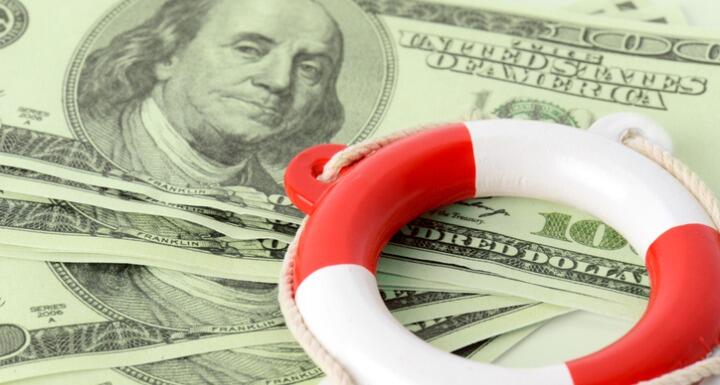
[Ed. Note: This article has been updated to address FAQ 47, published on May 13, which extends the original safe harbor deadline to May 18 for PPP borrowers to return their loans. The deadline extension is applicable to PPP borrowers who have received loans in excess of $2 million and want to return their PPP loans to take advantage of the SBA's original safe harbor rule.]
It has been more than a week since the Small Business Administration ("SBA") extended the safe harbor deadline to May 14 for borrowers of Paycheck Protection Program ("PPP") loans to return their PPP loans.
According to previous SBA guidance, a borrower who applied for a PPP loan before April 24 and returns the PPP loan in full by the deadline will be deemed by the SBA to have made the certification that "current economic uncertainty makes this loan request necessary to support the ongoing operations of the Applicant" in good faith. As a reminder, all PPP loan applicants were required to make that good faith certification when applying for their PPP loan. While the SBA has continued to publish guidance since first announcing the safe harbor deadline, the guidance has arguably created more questions than answers for those PPP borrowers who are concerned about the good faith certification. Please refer to our previous article for more background.
Yesterday, the SBA published Frequently Asked Question ("FAQ") 46, which provides some answers for PPP borrowers who are concerned about the good faith certification. In effect, the SBA has created a new safe harbor rule for borrowers with smaller loans to satisfy the requirement that they make the good faith certification that their PPP loan was necessary to support their ongoing operations: "Any borrower that, together with its affiliates, received PPP loans with an original principal amount of less than $2 million will be deemed to have made the required certification concerning the necessity of the loan request in good faith." This means that a borrower with a PPP loan that, when combined with PPP loans received by the borrower's affiliates, totals less than $2 million does not need to return the loan by May 18 in order to satisfy the safe harbor rule. Rather, the SBA will deem that the certification concerning the necessity of the PPP loan was made in good faith due to the amount of the PPP loan. The SBA is effectively saying, "if the aggregate amount of your and your affiliates' PPP loans was less than $2 million, then you must have needed it."
FAQ 46 goes on to say that "borrowers with loans greater than $2 million that do not satisfy this safe harbor may still have an adequate basis for making the required good-faith certification, based on their individual circumstances in light of the language of the certification and SBA guidance." The SBA reminded borrowers that, as previously announced, they intend to review all PPP loans in excess of $2 million and other PPP loans as appropriate. FAQ 46 states that, during the review, if the SBA determines that the borrower lacked an adequate basis for making the certification in good faith, then the SBA will seek repayment of the outstanding PPP loan balance and the borrower will not be eligible for PPP loan forgiveness. However, if the borrower repays the loan after the SBA's review and determination, FAQ 46 indicates that the SBA will not pursue administrative enforcement or referrals to other agencies.
The SBA also published FAQ 47, which extends the original safe harbor deadline to return a PPP loan in full to May 18. The SBA explained that this extension gives borrowers an opportunity to review and consider FAQ 46.
What does all of this mean? If you received a PPP loan that, when combined with your affiliates' loans, is less than $2 million, you satisfy the requirements for the new safe harbor rule, and the SBA will deem that your certification concerning the necessity of the PPP loan was made in good faith. If you received a PPP loan that is more than $2 million and you are concerned about your certification, you may return the PPP loan in full by May 18 to satisfy the original safe harbor rule. However, if you borrowed a PPP loan that is more than $2 million and you do not return the PPP loan by May 18, the chances are that your loan will be reviewed by the SBA. During a review, if the SBA determines that you lacked an adequate basis for making the good faith certification, you will have to repay the outstanding balance of the PPP loan and will not be eligible for PPP loan forgiveness. Although the SBA has not provided a clear standard for determining whether a PPP loan was necessary, a borrower's current business activity and their ability to access other funding sources are relevant factors. However, the good news is that the SBA will not pursue administrative enforcement against borrowers who repay the PPP loan after receiving notification from the SBA.
What should you do? If you decide to keep your PPP loan, our advice remains the same: maintain thorough documentation of your circumstances that gave rise to your belief that a PPP loan was necessary to support the ongoing operations of your business, and of your PPP loan application, approval, utilization, and forgiveness. If you decide to return your PPP loan, be sure to return it by May 18. And, as always, be on the lookout for additional SBA guidance.
--
© 2024 Ward and Smith, P.A.
This article is not intended to give, and should not be relied upon for, legal advice in any particular circumstance or fact situation. No action should be taken in reliance upon the information contained in this article without obtaining the advice of an attorney.
We are your established legal network with offices in Asheville, Greenville, New Bern, Raleigh, and Wilmington, NC.








